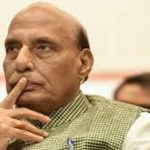India Beats Pakistan in Controversial Asia Cup Final
The Indian cricket team won the Asia Cup 2025 final against Pakistan by five wickets in Dubai, UAE, on September 29, 2025. However, tensions escalated when India refused to accept the trophy because it was to be presented by Pakistani Interior Minister Mohsin Naqvi, who also serves as ACC president and PCB chairman.
Players celebrated their victory without physically holding the trophy, marking a rare moment in cricket history.
Why India Refused the Trophy
The Board of Control for Cricket in India (BCCI), represented by chairman Devajit Saikia, stated that the team decided not to accept the trophy from Naqvi due to his political role in Pakistan.
“We have decided not to take the Asia Cup trophy from the ACC chairman, who is also a political leader of Pakistan,” Saikia said.
The trophy and medals remain with the tournament organizers and were not handed over to India immediately after the final.
Match Day Events
The final concluded at approximately 10:30 PM local time, but the award presentation was delayed until midnight. Footage showed Naqvi interacting with officials, while the Asia Cup champions trophy was unexpectedly removed from the dais before the ceremony began.
Indian players Kuldeep Yadav, Abhishek Sharma, and Tilak Varma received their individual awards from other dignitaries, bypassing the ACC chief. Pakistani captain Salman Agha collected the runners-up cheque from Naqvi.
Former cricketer Simon Doull announced that India would not collect their awards, officially ending the ceremony. Indian captain Suryakumar Yadav later confirmed it was the team’s decision, expressing pride in their performance but disappointment at being denied the trophy.
Political Context Behind the Tensions
India-Pakistan relations have been strained for decades, with tensions escalating sharply after the Pahalgam terror attack on April 22, 2025, which killed 26 Indian tourists. India alleges the attack was linked to Pakistan-based groups, which Islamabad denies.
Military conflicts followed:
-
May 7, 2025: India launched Operation Sindoor, targeting Pakistani sites.
-
May 10, 2025: Pakistan responded with Operation Bunyan Marsoos, striking Indian military positions.
-
A ceasefire agreement was later mediated by US President Donald Trump.
These tensions created a charged atmosphere around the Asia Cup, influencing decisions on participation and post-match protocols.
Cricket Diplomacy and Its Decline
Historically, cricket has served as a diplomatic bridge between India and Pakistan, a practice known as “cricket diplomacy.” Past events, including visits by leaders such as Zia-ul-Haq, Pervez Musharraf, and Manmohan Singh, used cricket matches to ease tensions and foster dialogue.
However, ongoing political and military conflicts have undermined cricket’s role as a tool for peace. Analysts argue that India’s refusal to accept the trophy reflects this shift, where sports are now influenced by diplomatic and security concerns rather than goodwill.
Responses from Leaders
-
PM Narendra Modi posted on X, celebrating India’s victory as “#OperationSindoor on the games field.”
-
Mohsin Naqvi criticized India’s stance, saying, “Dragging politics into the game goes against the very spirit of sports.”
-
Analysts highlight that India’s decision aligns with its broader policy of distancing from Pakistan amid unresolved cross-border tensions.
Indian captain Suryakumar Yadav also dedicated the team’s victory to Indian armed forces and the victims of the Pahalgam attack, reinforcing the link between cricket and national sentiment.
Key Takeaway
The Asia Cup 2025 final demonstrates how political tensions can overshadow sports, even in international tournaments. While India celebrated their historic win, the refusal to accept the trophy highlights the complex intersection of cricket, diplomacy, and national security between India and Pakistan.

















